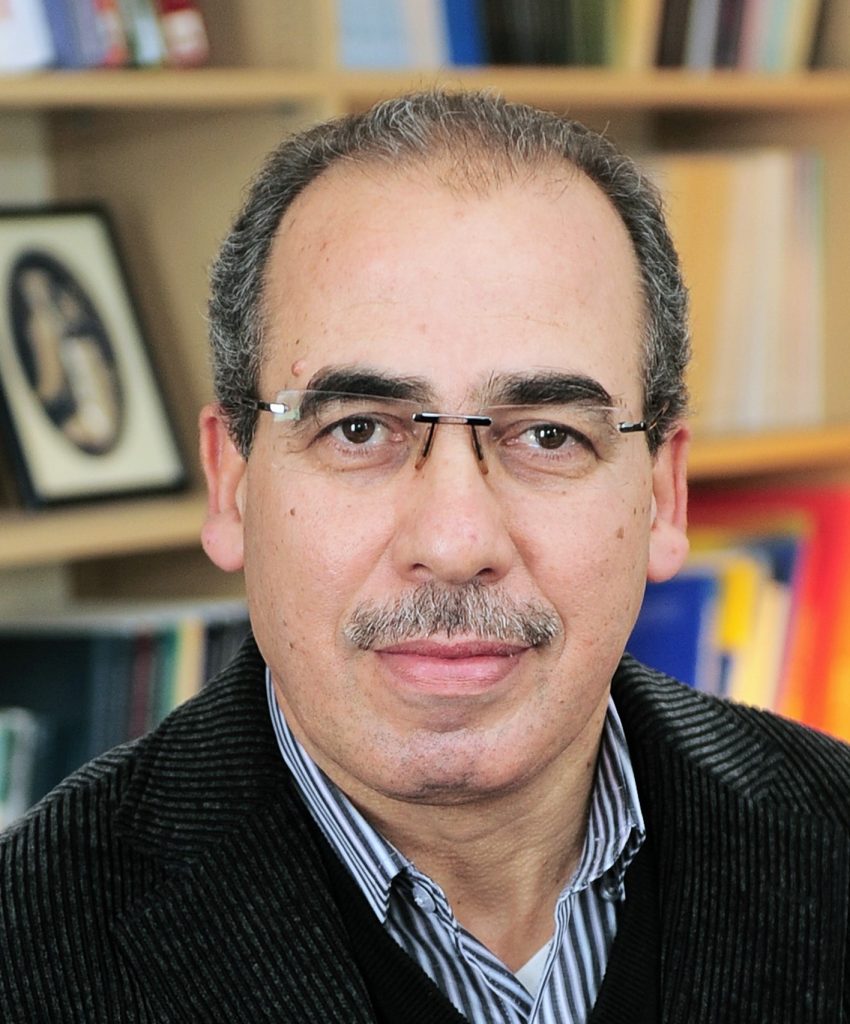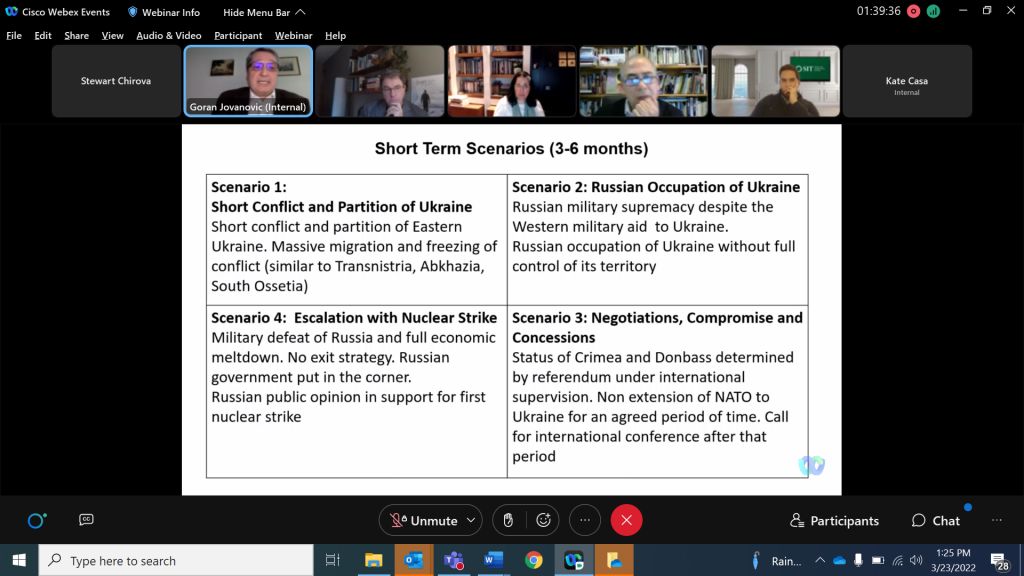SIT experts reflect on Ukraine crisis
'When the elephants fight, the grass gets trampled'
March 29th, 2022 | School for International Training
Find the recording here

School for International Training faculty and academic experts explored multiple angles and implications of the Ukraine crisis during a virtual panel on March 23. Moderated by SIT Dean of Faculty Dr. Said Graiouid, “Ukraine and Beyond: Reflections and Implications” examined diverse perspectives on what the future holds for a peaceful and just conclusion to the conflict.
“This is an awakening moment, not only for the people in Europe, but also beyond, because there is so much that will be impacted by what’s happening, and there is so much that can be learned,” Graiouid said.
Dr. Goran Jovanovic, SIT Study Abroad academic director in Switzerland, drew insight from European history to explore what brought Russia and Ukraine to the point of conflict and its mid- and long-term impacts. He explored the main drivers and trends of the conflict and offered scenarios on how the conflict might end.

Dr. Bruce Dayton, chair of SIT Graduate Institute programs in peace studies and international diplomacy, explored why the conflict escalated, the future of global peace, and Ukraine as a case study of direct negotiation. He emphasized how violence perpetrated by a major power often inspires people to rise up and fight back against an oppressor, as we’ve seen in the case of Ukraine.
“We have this obvious and tragic example of a flawed assumption by a leader that if only enough force is applied, surely the adversary will yield,” he said. “But, in identity conflicts, we know that things don’t work out that way—more force creates greater in-group solidarity and a greater willingness to fight.”
Dr. Orli Fridman, who leads SIT graduate and undergraduate programs in Serbia, explored the current landscape through the lens of the media, digital activism, and engaged citizenship.
She shared examples of thought leadership and advocacy across the news and Twitter, where much of the Ukraine discourse has made comparisons to the conflicts and anti-war activism around southeastern Europe in the 1990s, often from those who experienced it firsthand. Referring to Hannah Arendt’s 1963 book “Eichmann in Jerusalem: A Report on the Banality of Evil,” Fridman said this discourse is crucial as “a motherland cannot exist without the option for opposition and criticism.”
People play ping pong with Africa.
SIT Faculty Member Stewart Chirova
Stewart Chirova, academic and program director for SIT programs in South Africa, shared perspectives from outside Europe, specifically from the context of Africa. He drew upon an African proverb: “When the elephants fight, the grass gets trampled,” meaning that when powerful forces go to war, it is the people that suffer the most. When it comes to the Ukraine conflict, major world powers have proven that they may forgo multicultural diplomacy in favor of unilateral action, often to Africa’s detriment.
“People play ping pong with Africa,” he said. “They tend to come to Africa for convenience, but when Africa doesn’t offer them anything, Africa is often left to fend for themselves. Hopefully, this will allow us all to reflect on what it means to be a human being in the world we are living in today.”
Concluding the panel before a question-and-answer segment was Tim Rivera, World Learning advisor and affiliate of the Transatlantic Policy Center at American University who has extensively studied Russian language and politics.
Rivera focused on the European Union’s response to the conflict and explored the impacts of the Ukraine crisis on trans-Atlantic relations. As the conflict continues, the U.S. and Europe are experiencing a critical moment of trans-Atlantic solidarity and community. He explained that this is especially true with the Biden administration, but the next presidential election makes for an uncertain future.
While the future of this crisis is uncertain, what remains true for many is the hope that this conflict comes to a swift conclusion and a pathway forward for peace is put in place.
Click here to access the webinar with password OneWL1932.
